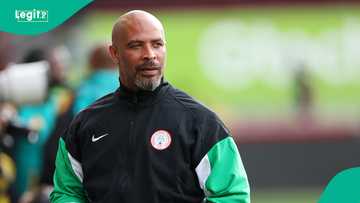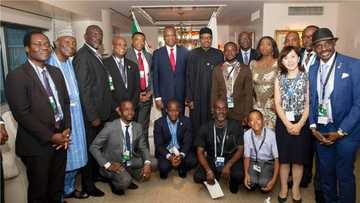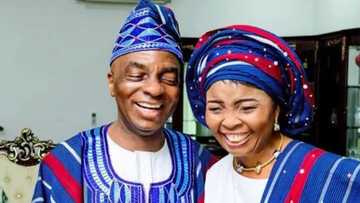10 Things Nigerian Entrepreneurs Must Know Before Setting Up Shop in Ghana
- Many Nigerians see Ghana as a natural next step for business expansion, but the country’s market runs on its own playbook that can surprise first-timers
- Businesses expanding from Nigeria to Ghana must tailor tech strategies to effectively engage with the specific characteristics of the Ghanaian market
- Legit.ng compiles 10 key insights that every Nigerian entrepreneur should know before opening shop in Accra
The history between Nigeria and Ghana goes a long way back, at least to the British colonial masters who bequeathed their English language to the nations, making it seem like they are geographical neighbours, when in actual sense, there are at least two countries in between.
Mentally, Nigerians and Ghanaians have erased Benin Republic and Togo, two French-speaking countries that lie in-between because we do not have a language (and probably jollof) in common. This history has subsequently influenced the inflow and outflow of cultural and socio-economic elements between Africa’s most populous country and the Gold Coast.
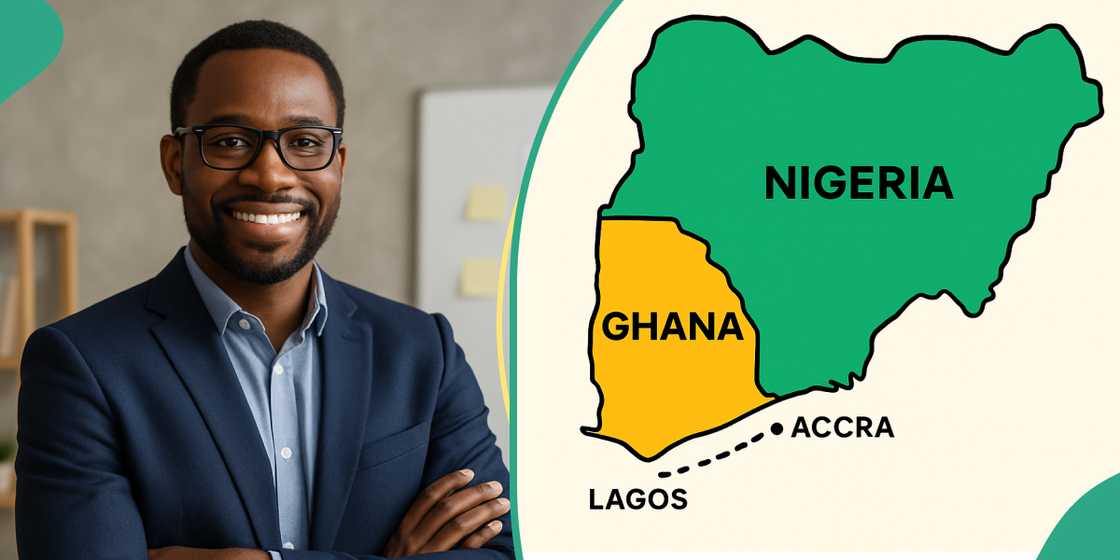
Source: UGC
Today, many Nigerian entrepreneurs see Ghana as the natural next frontier. But before declaring “we’ve conquered Nigeria, let’s go to Ghana,” there are important insights to take into consideration and Legit.ng has compiled them below.
10 insights for Nigerian entrepreneurs eyeing Ghana
1. Prepare for a cash-first economy:
This may come as a culture shock to Nigerian entrepreneurs looking to make a foray into the Ghanaian market. Mobile transfers and online banking are not popular and even those familiar with the process often baulk at it. Therefore, businesses should prepare for cash dependence. It is perhaps noteworthy that coins are still a thing in John Mahama’s country.
The last time coins were spent in Nigeria was probably in the early 2000s. The Alpha Generation in Nigeria have certainly not come across metal money before, and Gen Z's only saw a bit of it. Given that no business can run without payment, this is an issue to hold dear to heart.

Read also
Nigerian prophetess predicts rise of 2 African greats like Lionel Messi and Cristiano Ronaldo
2. Forget PoS, think MoMo:
If you are looking to invade the Gold Coast armed with Point of Sale (PoS) terminals, you would have lost the battle before you ever began. What PoS is in Nigeria is what Mobile Money (MoMo) is in Ghana. MoMo, which is USSD-dependent, is the face of the financial inclusion agenda with our Chale friends.
You would only find PoS at a handful of places across the country and even those who have would tell you that it hardly gets used.
Nigerian fintech giant Paystack has woven itself into the MoMo fabric and facilitates payment through this channel. Maybe this can soften the ground for ambitious entrepreneurs looking to scale in Ghana as MoMo is the way to go.
Its success in Ghana and spectacular slow adoption in Nigeria would continue to confound MTN but there is only so much swimming one can do against the tide.
3. Adapt your tech strategy to a low-digital market:
The success of MoMo in Ghana and otherwise in Nigeria (and vice versa) then becomes an indicator that an average Ghanaian is not as tech-savvy as an average Nigerian.
PoS requires basic level of tech understanding, internet access and familiarity with online and fintech workings. USSD, on the other hand, works on the most basic of phones, with no need for terminals, smartphones or any other internet-enabled gadget.
Any business looking to expand into Ghana and would rely heavily on tech and app deployment would need to think twice about its operations and strategies. To successfully sell in Ghana means to adapt your tech strategy to a low-digital market.
While the society continues to evolve, it is not at the same place Nigeria is. Expectations must be tempered and adaptation must be championed.
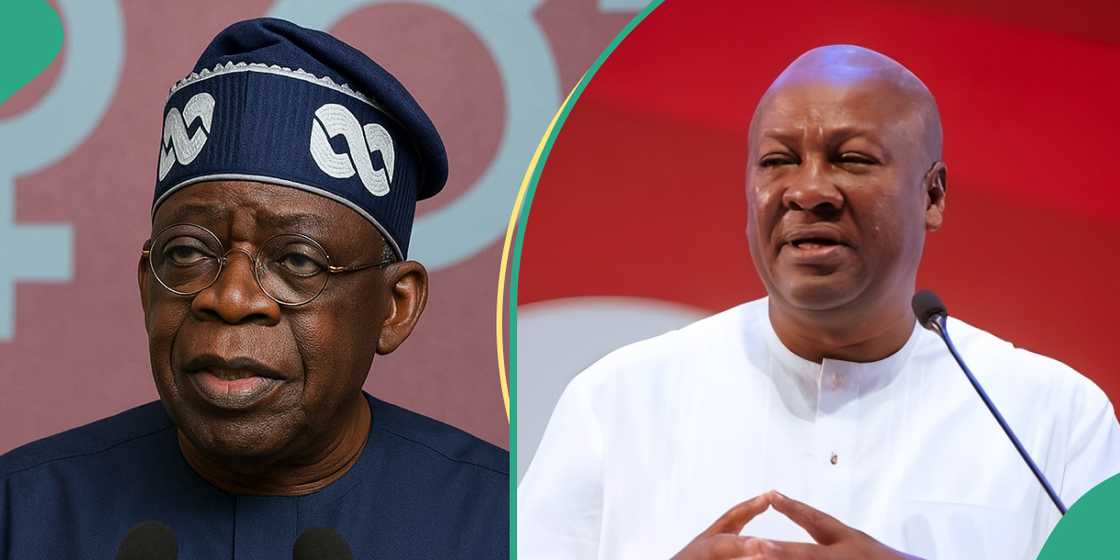
Source: Twitter
4. Understand Ghana’s population dynamics and Accra’s centrality:
The population of Ghana is estimated to be 35 million as of 2025. Lagos state alone has 22 million notwithstanding its minute landmass. The estimated population of Accra is 3.6 million. Nigeria as a whole is reported to contain some 200 million heads.
Accra is like Lagos and Abuja put together because it is both the political and commercial capital of Ghana. It is a no-brainer that businesses enter Accra first. However, its population is a fraction (16%) of Lagos’.
This puts a limit on the maximum number of customers you can have as a business, especially if your product or service is quantity based.
Jollof can be deceiving but numbers don’t lie.
5. Prioritise TV and radio over social media:
While social media users in Ghana number about eight million, daily television viewers peak at 13.4 million, according to research by Global Media Kit. The 13.4 million TV figure does not include radio listeners.
If half of that figure listens to radio, then we have some 20 million combined. Normally, trends dictate that radio listeners usually outnumber television viewers.
The short version of this analysis is that social media still has a long way to catch up with traditional media. Marketing, advertising and PR agencies are therefore advised on which way to follow.
6. Prepare for tough trading rules:
The laws in Ghana prohibit foreigners from trading in the country. Judging by the number of abokis selling suya and Igbos selling gadgets in Accra, the law is not strictly enforced. However, this doesn’t change the fact that such exists.
Although ‘trading’ can be interpreted in very many ways, there are conditions to fulfil before a Nigerian can set up a shop. Per the Ghana Investment Promotion Centre Act 2013 (Act 865), a person who is not a citizen may engage in a trading enterprise if that person invests not less than one million United States dollars in cash or goods or services relevant to the investments. Another condition is employing at least 20 Ghanaians.
Make of that what you will but ultimately, brace yourself for walls and legalities.
7. Partner with local brands for faster success:
If navigating the laws and landscapes in Ghana proves too consuming in terms of time and resources, the easier way out may be to partner with an indigenous brand. Partnering with a local brand gives you insider access, cuts through red tape, and allows you focus on cracking the market. Sometimes, collaboration is cheaper and smarter than trying to go solo.
8. Get familiar with Accra’s business districts:
The Accra Business Centre is the heart and hub of commerce in the capital territory of Ghana. The business centre consists of markets such as Makola, Agbogbloshie, Tudu, Kantamanto, UTC and Tema Station. Everything you need, you can get here, and any shop you want to open, you could do that here. The crowd hardly ever goes down; the stampede is non-stop. Think of Tejuosho, Balogun or Computer Village in Lagos as equivalents.
9. Know the markets to go and their speciality:
Like Nigeria, markets in Ghana also have what they are popular for. The Abossey Okai market is popular for spare parts, Kaneshie for fabrics and jewellery, Lapaz is the typical night market that has everything for your eleventh-hour shopping, Circle for phones, gadgets and electronics etc.
10. Leverage shared pop culture:
Because Ghanaians consume a lot of Nollywood and our Afrobeats music, our pop cultures have a lot in common. Slang expressions, memes, cultural moments, celebrity gaffes are what Nigerians and Ghanaians can mutually relate to, not to mention the eternal jollof war.
Therefore, marketers need not struggle before they can connect with the Ghanaian audience. Nollywood and Afrobeats references, particularly, would help to create instant resonance with Ghanaian consumers. It is said, when culture connects, products sell.
Nigerians rejoice as petrol price drops below Ghana's
Meanwhile, Legit.ng earlier reported that what Nigerians pay for Premium Motor Spirit (PMS), commonly known as petrol, is significantly lesser than what their West African counterparts pay.
According to a new report from the Major Energies Marketers Association of Nigeria (MEMAN), the average price of petrol in Nigeria is N870, down from the previous price of N890. By comparison, fuel cost in neighbouring countries such as Ghana is around ₦2,098 per litre ($1.37), and Benin at ₦1,902 per litre ($1.24).
Source: Legit.ng



